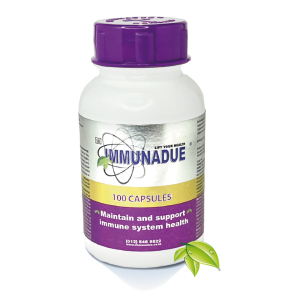- Class of Mineral:
-
- Magnesium is a metallic mineral that is essential for various physiological functions.
- Magnesium is considered alkalizing. It helps maintain the body’s acid-base balance by acting as a buffer against acidic substances.
- How the Body Utilizes Magnesium:
Magnesium is vital for:
-
- Energy Production: Involved in the production of ATP, the body’s primary energy source.
- Protein Synthesis: Plays a crucial role in the synthesis of proteins.
- Muscle and Nerve Function: Regulates muscle contractions and nerve impulses.
- Blood Sugar Control: Helps regulate blood sugar levels.
- Magnesium Supplement Dosage:
- Recommended Daily Allowance (RDA): The RDA for magnesium varies by age and gender. For adults, it is around 310 mg to 420 mg per day.
- Typical Dietary Intake: Dietary intake varies but can be met through a balanced diet rich in leafy greens, nuts, seeds, and whole grains.
- Tolerable Upper Intake Level (UL): The UL for magnesium is 350 mg per day for adults. Excessive intake can lead to diarrhoea and gastrointestinal discomfort.
- Symptoms of a Magnesium Shortage: A deficiency in magnesium can lead to:
- Fatigue: Low energy levels and muscle weakness.
- Muscle Twitching and Cramps: Involuntary muscle contractions and cramps.
- Mental Health Issues: Anxiety, irritability, and depression.
- Osteoporosis: Weakening of bones, increasing the risk of fractures.
- High Blood Pressure: Magnesium helps relax blood vessels, and a deficiency can lead to high blood pressure.
- Symptoms of too much magnesium (also known as hypermagnesemia) include:
- Nausea and vomiting
- Diarrhoea
- Low blood pressure
- Muscle weakness
- Difficulty breathing
- Irregular heartbeat
- Fatigue
- Confusion
- Fainting
Hypermagnesemia is rare and usually occurs in people with kidney problems or those taking high doses of magnesium supplements. It’s essential to consult a healthcare professional if you experience any of these symptoms or have concerns about your magnesium levels.
- Magnesium Supplement Forms:
- Magnesium Oxide: Inexpensive but poorly absorbed form.
- Magnesium Citrate: Better absorbed and more bioavailable than magnesium oxide.
- Magnesium Glycinate: Highly absorbable and gentle on the stomach.
- Magnesium Chloride: Highly absorbable and suitable for those with sensitive stomachs.
- Various food sources for magnesium include:
- Leafy green vegetables: Spinach, kale, and Swiss chard are good sources of magnesium.
- Nuts and seeds: Almonds, cashews, peanuts, and pumpkin seeds are rich in magnesium.
- Legumes: Black beans, edamame, and chickpeas are good sources of magnesium.
- Whole grains: Brown rice, quinoa, and oatmeal contain magnesium.
- Fish: Salmon, mackerel, and halibut are good sources of magnesium.
- Soy products: Tofu and tempeh contain magnesium.
- Avocados: These fruits are high in magnesium.
- Dark chocolate: A source of magnesium, but should be consumed in moderation due to high calorie and sugar content.
- Bananas: A good source of magnesium, along with potassium.
- Low-fat dairy products: Milk, yogurt, and cheese contain magnesium.
- How to Take Magnesium:
- Meal Timing: Take magnesium supplements with meals to enhance absorption, especially those containing dietary fats.
- Time of Day: No specific time restrictions but dividing the dosage throughout the day may improve absorption.
- Avoid taking magnesium supplements with high-fibre meals, as they can interfere with absorption.
- Be mindful of the magnesium content in other supplements, as excessive intake can lead to adverse effects.
- Positive and Negative Interactions:
Positive Interactions:
-
- Vitamin B6: Enhances magnesium absorption and utilization.
- Vitamin D: Works synergistically with magnesium for bone health.
Negative Interactions:
-
- Antibiotics: Some antibiotics may decrease magnesium absorption.
- Medications for osteoporosis or kidney diseases: These medications may interact with magnesium, so consult a healthcare professional before taking magnesium supplements.
- Contraindications and Risks:
- Individuals with kidney problems should consult a healthcare professional before taking magnesium supplements.
- High-dose magnesium supplementation may cause diarrhoea or abdominal cramping in some individuals.
- Always consult a healthcare provider before making significant changes to your magnesium intake, especially if dealing with existing health conditions or taking medications






Reviews
There are no reviews yet.